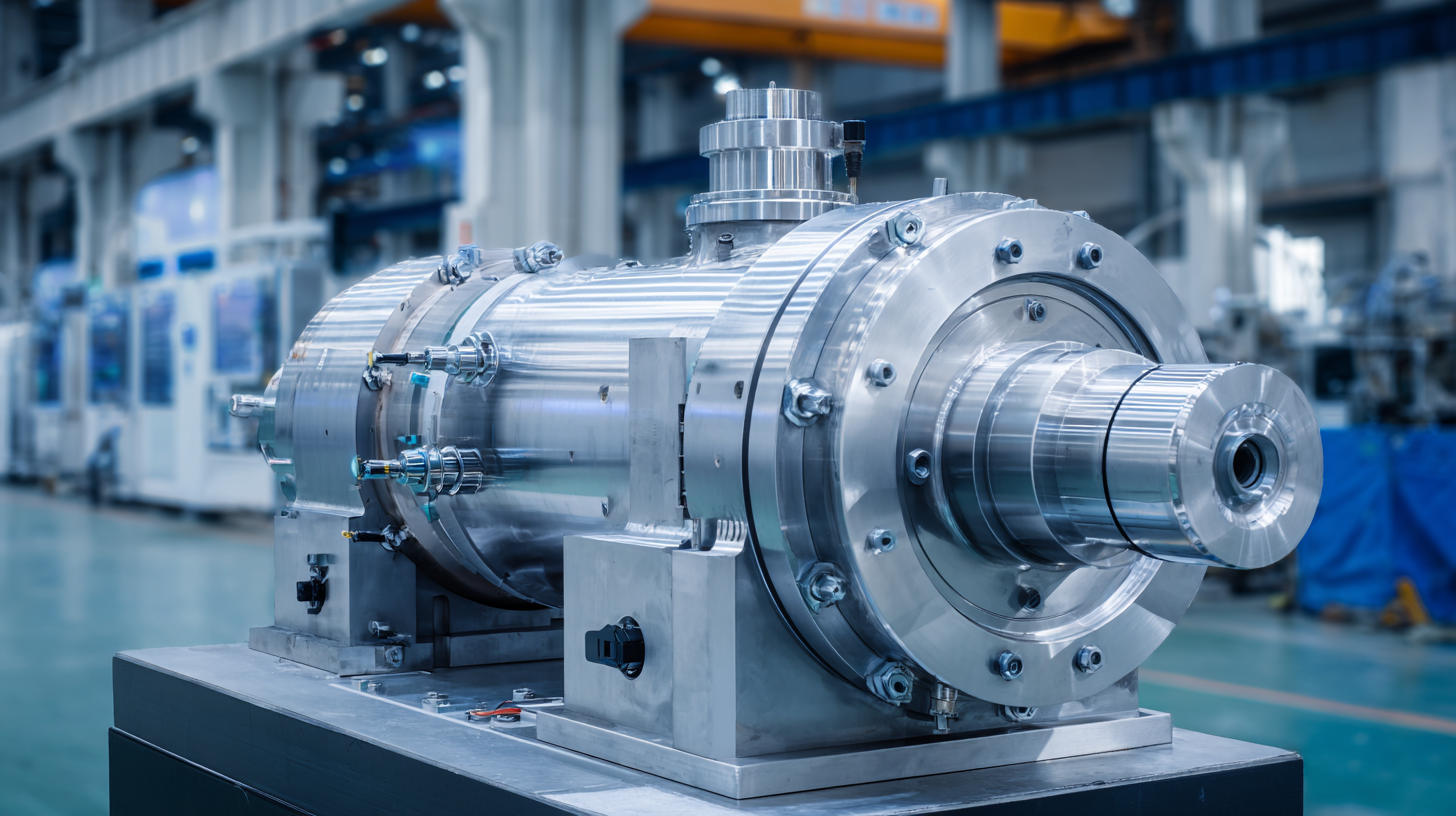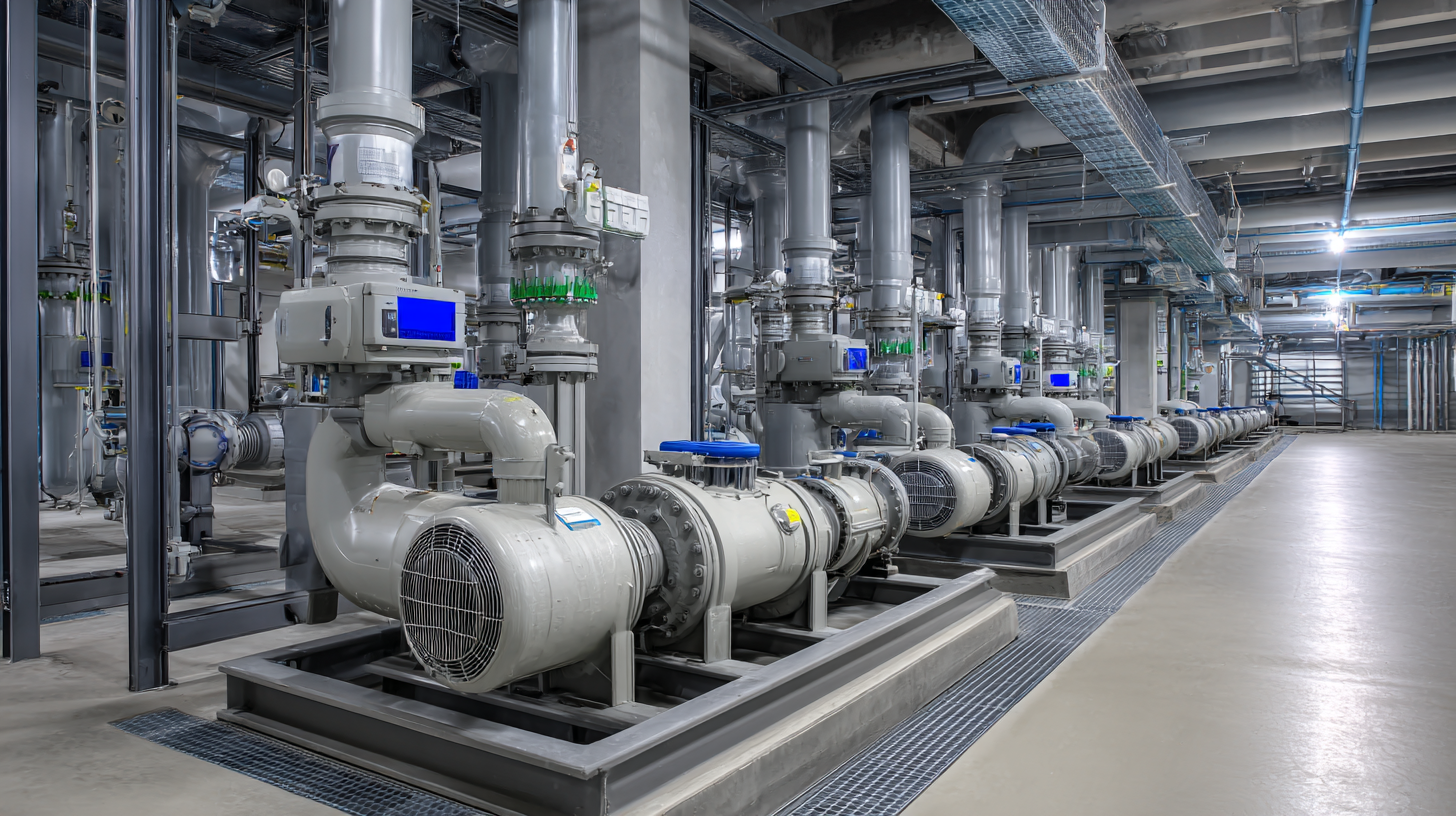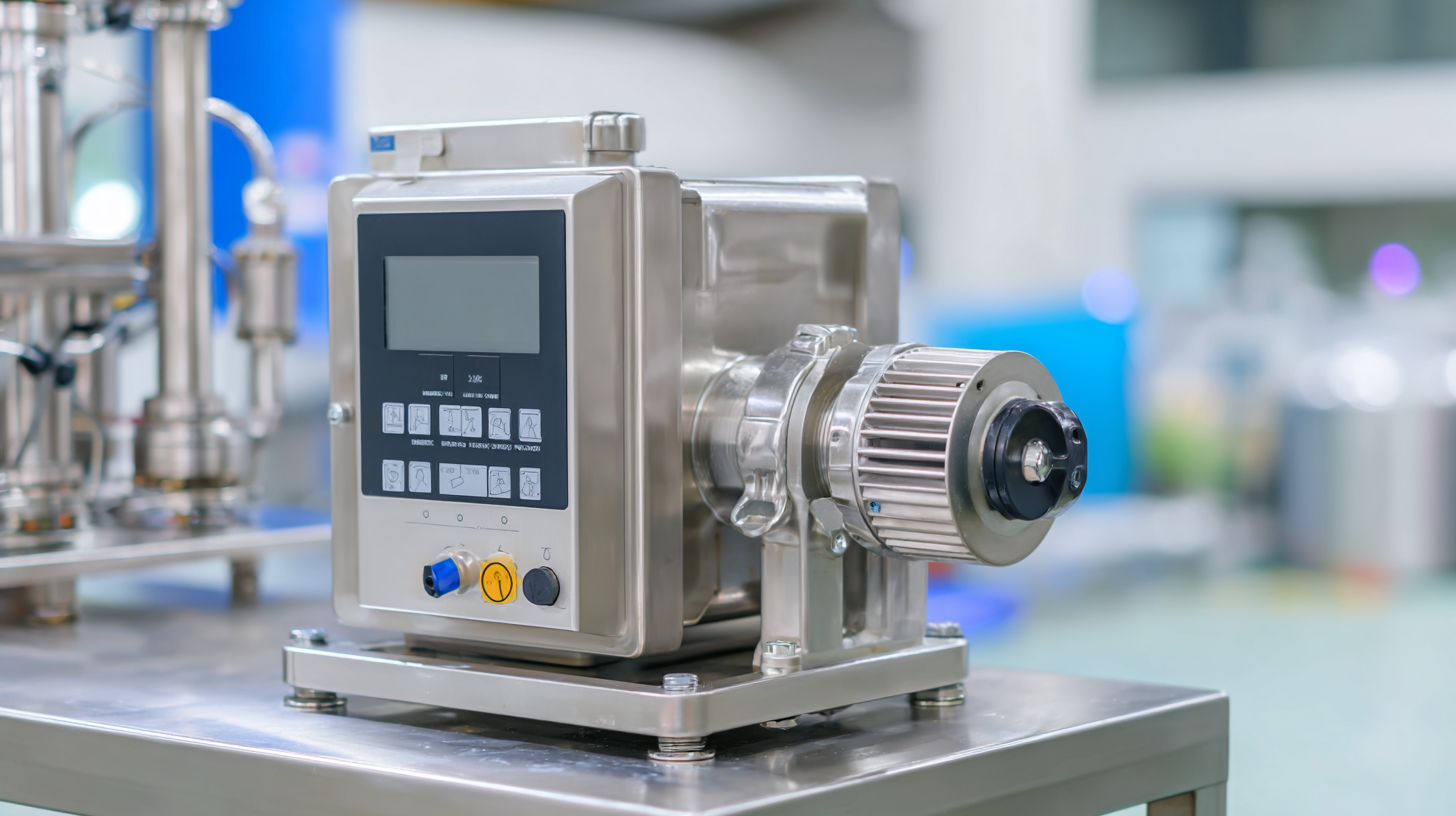In today’s industrial landscape, the demand for efficiency and precision in fluid management has led to the rise of Smart Pumps, which integrate advanced technology to optimize performance. Choosing the right Smart Pump for your specific needs can seem daunting given the variety of models and features available in the market. However, understanding the key factors that influence this decision is crucial for enhancing operational efficiency and reducing costs. This blog will guide you through the essential considerations, such as flow rate, pressure requirements, control systems, and integration capabilities, helping you navigate the complexities of selecting the ideal Smart Pump for your operations. Whether you're in manufacturing, chemical processing, or water treatment, making an informed choice will ensure that your investments yield significant returns in productivity and sustainability.

When selecting the right smart pump for industrial applications, it is essential to consider several key factors to ensure optimal performance and efficiency. First, evaluate the specific requirements of your operation, including the type of fluid being pumped, flow rate, and pressure conditions. Different pumps are designed for various industrial fluids, such as corrosive substances, slurries, or high-viscosity liquids. Understanding the characteristics of the fluid will guide you in choosing a pump that minimizes wear and maximizes lifespan.
Another critical factor is the level of automation and monitoring you require. Modern smart pumps come equipped with advanced features such as real-time data tracking, remote control, and predictive maintenance capabilities. Assess your facility's need for these features, as they can significantly enhance operational efficiency and reduce downtime. Additionally, compatibility with existing systems and ease of integration should also be taken into account, ensuring that the smart pump can seamlessly work within your current infrastructure while providing the necessary improvements in process control and energy savings.
| Factor | Description | Importance Level |
|---|---|---|
| Flow Rate | The volume of fluid that can be pumped per unit of time. | High |
| Viscosity | The thickness of fluid, which affects pump efficiency. | Medium |
| Temperature Range | The operational temperature limits of the pump. | Medium |
| Material Compatibility | The pump must be compatible with the pump media. | High |
| Control Features | Availability of automation and smart control options. | Low |
| Energy Efficiency | Assessment of energy consumption and potential savings. | Medium |
| Maintenance Requirements | Understanding the maintenance and service needs of the pump. | Medium |
When selecting the right smart pump for industrial applications, it is crucial to understand the diverse types available and their specific functionalities. Smart pumps, equipped with IoT technology, provide real-time monitoring and automation, allowing for enhanced efficiency and precise control in fluid management. Various models cater to different needs, from those designed for high-pressure applications to others suited for low-flow environments. Understanding these differences helps industries optimize their processes and reduce operational costs.
In recent years, the industrial pump market has seen significant growth, driven by technological advancements and increasing demand across sectors. By 2032, the market is projected to reach a valuation of over $1 trillion, highlighting the importance of choosing pumps that align with operational requirements. Features such as remote diagnostics, energy efficiency, and compatibility with renewable energy sources are becoming essential considerations for companies looking to future-proof their investments. Thus, selecting the appropriate smart pump is not merely about functionality but also about ensuring compatibility with evolving industrial needs and technological trends.
 Smart pumps are revolutionizing industrial operations by significantly enhancing energy efficiency and reducing operational costs. Unlike traditional pumps, smart pumps leverage advanced technologies such as IoT and AI to optimize their performance. This intelligent operation allows these pumps to adjust their output based on real-time demand, minimizing energy waste. By accurately monitoring system dynamics, smart pumps can operate at optimal capacity, thereby leading to substantial cost savings over time.
Smart pumps are revolutionizing industrial operations by significantly enhancing energy efficiency and reducing operational costs. Unlike traditional pumps, smart pumps leverage advanced technologies such as IoT and AI to optimize their performance. This intelligent operation allows these pumps to adjust their output based on real-time demand, minimizing energy waste. By accurately monitoring system dynamics, smart pumps can operate at optimal capacity, thereby leading to substantial cost savings over time.
Furthermore, the integration of smart pumps into industrial systems can lead to improved reliability and maintenance efficiency. With real-time data analytics, operators can predict potential issues before they escalate into costly repairs or downtime. This proactive approach not only reduces maintenance costs but also extends the lifespan of the equipment. Additionally, with the ability to integrate seamlessly into existing systems, smart pumps present a low-barrier solution for industries looking to enhance their operational efficiency while maintaining budgetary constraints.
In today’s industrial landscape, the integration of IoT (Internet of Things) in smart pump technologies has revolutionized operational efficiency. According to a report by MarketsandMarkets, the global smart pump market is projected to grow from $1.9 billion in 2021 to $6.5 billion by 2026, reflecting a compound annual growth rate (CAGR) of 27.1%. This impressive growth is driven by the increasing demand for automated solutions and real-time data analytics. Smart pumps equipped with IoT capabilities allow for remote monitoring and management, reducing downtime and optimizing performance through data-driven insights.
Data analytics plays a crucial role in maximizing the benefits of smart pumps. Advanced algorithms analyze operational data, enabling predictive maintenance and significantly reducing costs associated with unexpected failures. A study by ResearchAndMarkets highlights that leveraging data analytics can reduce operational costs by up to 30% and improve pump performance by 20% through enhanced decision-making processes. As industries begin to realize the importance of data in optimizing their operations, selecting a smart pump that not only integrates IoT but also provides comprehensive data analytics is essential for meeting industrial needs efficiently.
When selecting a smart pump for your industrial needs, compatibility with existing systems is paramount. First, assess the current infrastructure, including control systems and protocols. Smart pumps should seamlessly integrate with your existing hardware and software to ensure efficient operation. Compatibility with communication protocols, such as MQTT, Modbus, or BACnet, can significantly affect the ease with which the new pump can be integrated. A thorough review of your current systems will help identify any potential barriers and facilitate a smoother incorporation of advanced technology.

Moreover, understanding the specific application requirements and operational processes is crucial. Different smart pumps come equipped with various sensors and features designed for specific tasks, such as flow monitoring or pressure regulation. An evaluation of your existing equipment will clarify the necessary specifications that the new pump must meet. It’s also advisable to consult with manufacturers or technology providers to ascertain which models best suit your operational framework, as well as to explore any potential for upgrades or enhancements that align with your long-term industrial strategy. By prioritizing compatibility, you can leverage the full potential of smart pumps, thereby enhancing efficiency and streamlining operations.






